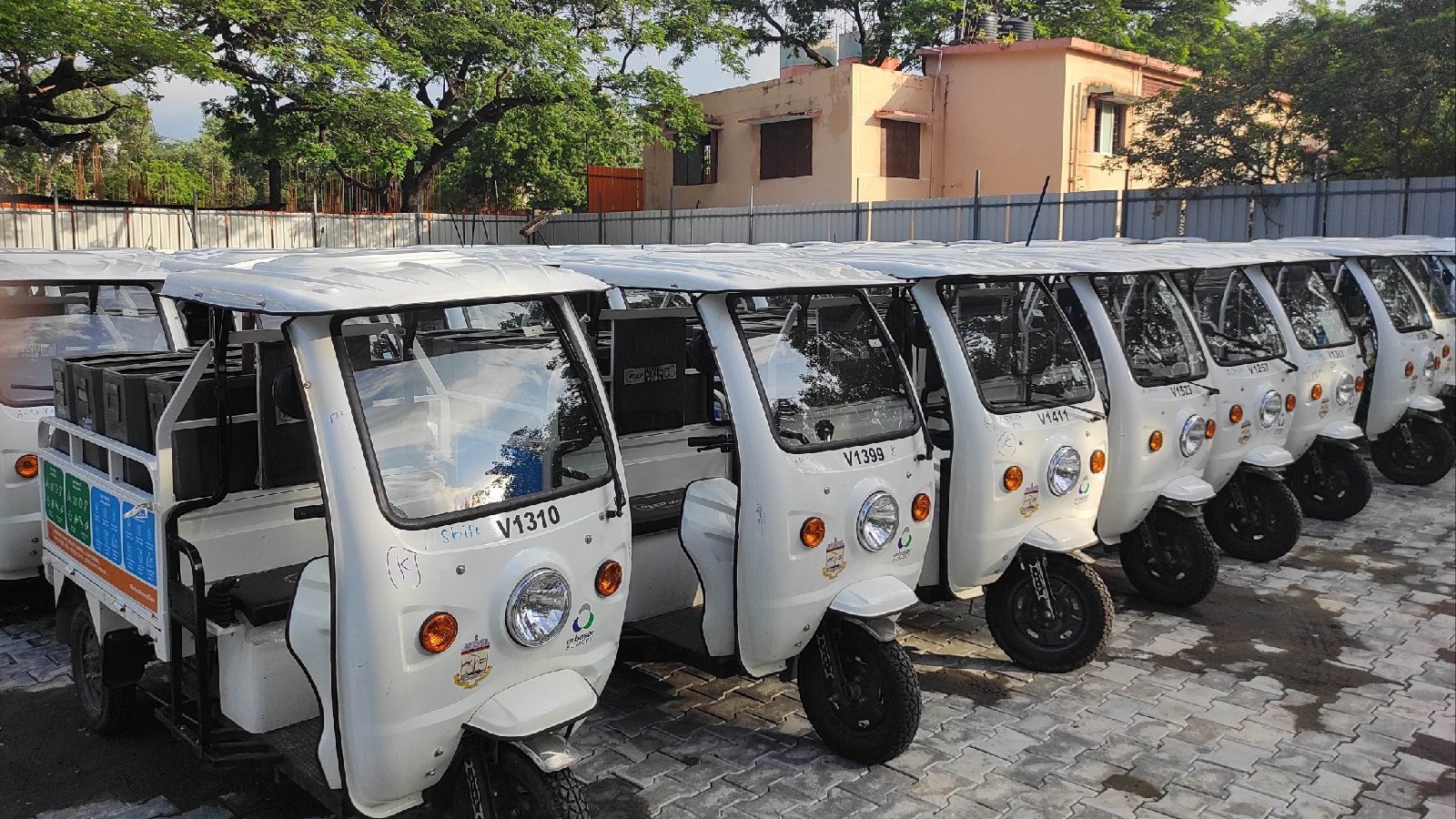New battery vehicles introduced in Chennai to clean key city zones
In a major move towards modernizing Chennai’s waste management system, new battery vehicles introduced in Chennai to clean areas like Royapuram and Thiru Vi Ka Nagar have sparked public attention. On Friday, Mayor R Priya flagged off 40 battery-operated vehicles (BOVs) along with 12 electric mechanical sweepers as part of the city’s green push toward cleaner streets and improved hygiene.
This initiative follows a new contract handed over to Chennai Enviro Solutions Private Limited, the private agency now responsible for handling solid waste in the two newly designated zones. The decision marks a shift towards public-private partnerships aimed at bringing innovation, efficiency, and accountability to city sanitation services.
These vehicles will play a crucial role in daily operations such as collecting household waste, sweeping major streets, and transporting garbage to disposal centers. The new battery vehicles introduced in Chennai to clean various forms of solid and domestic waste include both regular household garbage and more complex materials like silt from drains, disaster debris, and horticultural waste.
Massive fleet launch aims to boost solid waste management in Royapuram, Thiru Vi Ka Nagar
As per the civic body’s tender, the company is also tasked with collecting segregated waste, removing silt from canals and stormwater drains, handling domestic hazardous material, and ensuring proper transportation of garbage in a hygienic manner. This marks one of the most comprehensive sanitation efforts taken up by Greater Chennai Corporation (GCC) in recent years.

The local body has already deployed over 1,306 three-wheeler BOVs and other electric vehicles across different wards, which has helped streamline solid waste operations. Now, with the addition of 40 more vehicles and 12 high-tech sweeping machines, the focus is clearly on enhancing both efficiency and environmental sustainability.
The two newly assigned zones Royapuram and Thiru Vi Ka Nagar have been prioritized because of their dense population and high waste output. The electric sweepers will operate mainly in busy markets, commercial roads, and public corridors that require constant maintenance due to daily footfall.
Apart from machinery, trained sanitation workers will oversee operations to ensure proper implementation. The integration of electric vehicles also reduces the city’s carbon footprint, aligning with broader climate-friendly urban goals. These battery-operated units make little to no noise, emit no harmful smoke, and are ideal for densely populated residential areas where air and sound pollution are concerns.
Interestingly, this deployment is not just about maintaining cleanliness—it’s also about upgrading Chennai’s image as a smart and eco-conscious city. With battery-powered vehicles now being used for sweeping and waste collection, the city is expected to reduce its reliance on diesel-run units, which are both polluting and expensive to maintain.
New battery vehicles introduced in Chennai to clean roads, drains, and urban waste effectively
While there is still more ground to cover, this move is expected to set a strong precedent. Officials believe that better waste handling infrastructure, especially in overburdened urban zones, can significantly improve public health outcomes and reduce waste buildup in open spaces. Also Read: Meta Launched Mind-Reading Wristband: 5 Powerful Ways It Could Change Human Tech Forever
This initiative is part of GCC’s wider plan to transform the entire solid waste management model by introducing smart systems, technology-driven monitoring, and sustainable vehicles. The goal is to make Chennai a cleaner, greener, and more livable city with a strong emphasis on environmental health.
As the public gets used to these quiet, clean, and efficient machines cruising through their neighborhoods, the hope is that civic participation in cleanliness will also increase. Residents are being urged to support the mission by segregating waste at source and cooperating with municipal workers.
Conclusion
The new battery vehicles introduced in Chennai to clean key localities are not just a symbolic step—they mark the beginning of a serious and structured plan for environmental and urban improvement. With eco-friendly machines taking center stage, Chennai is making a clear statement about the future of its waste management: green, clean, and people-friendly.

